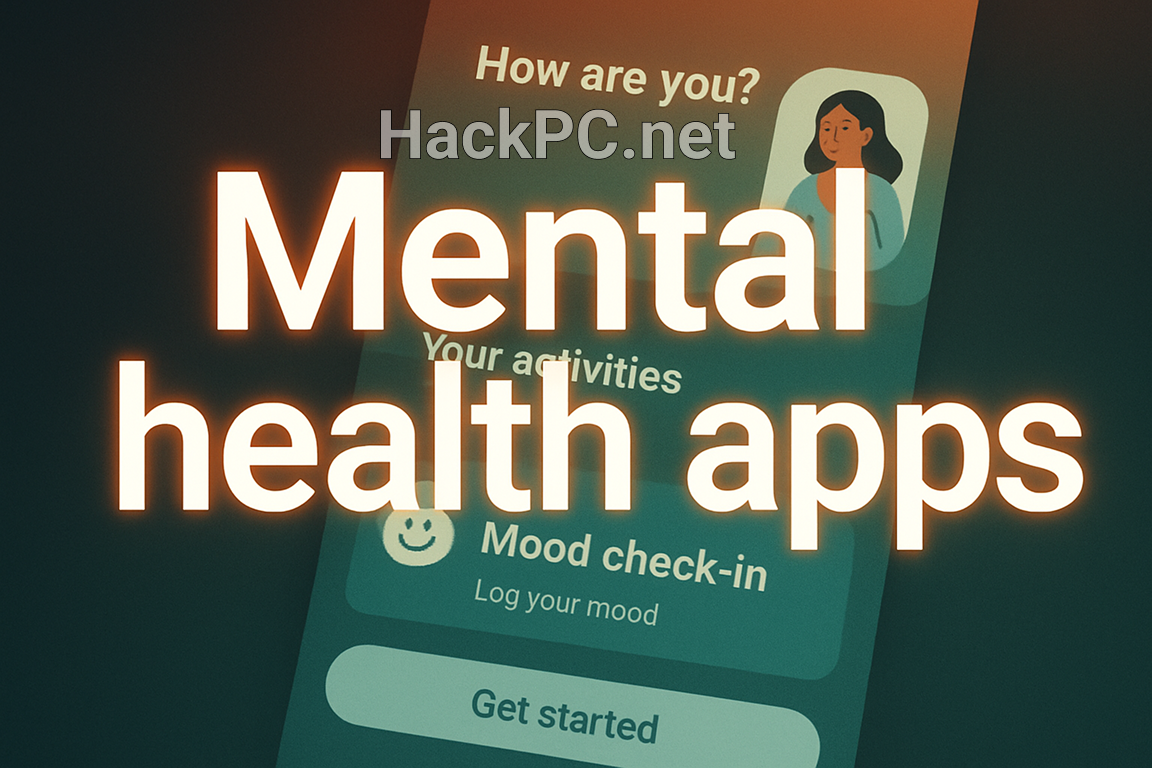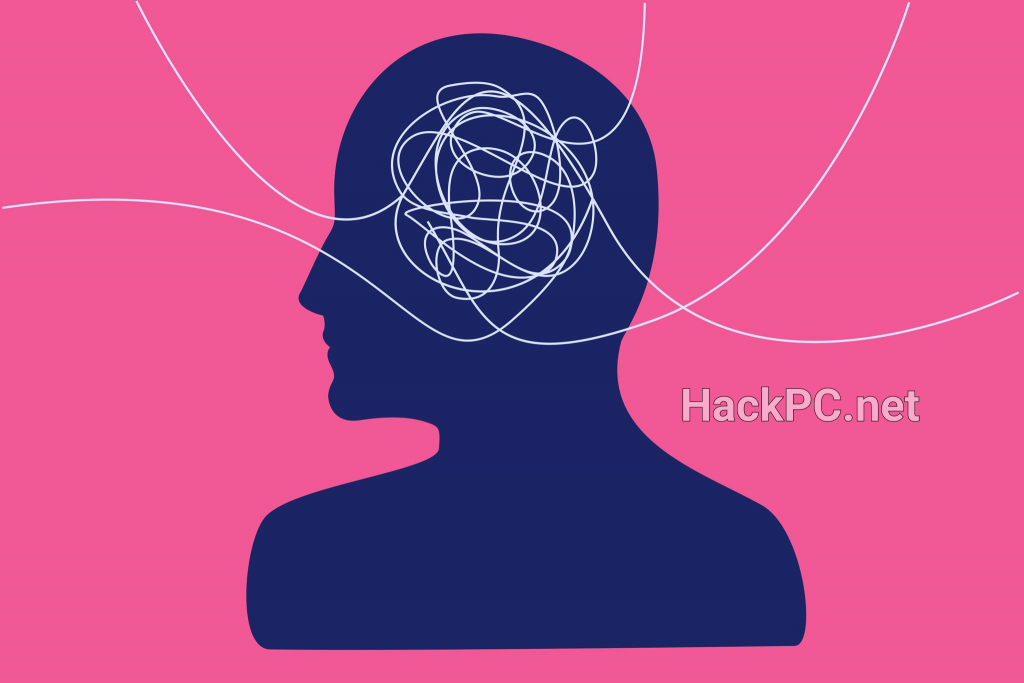
The mental wellness world has fundamentally transformed. With 280 million people worldwide experiencing depression and countless more facing anxiety disorders, digital mental health solutions have evolved from experimental tools to essential healthcare infrastructure. The $8.53 billion psychological wellness technology market represents more than just economic growth—it signals a societal shift in how we approach emotional support and therapeutic interventions.
The Current State of Digital Mental Health Innovation
Mental health applications now serve as primary access points for millions seeking psychological support. The global mental health apps market size is calculated at USD 8.53 billion in 2025 and is forecasted to reach around USD 36.44 billion by 2034, accelerating at a CAGR of 17.56%. This explosive growth reflects both technological advancement and changing attitudes toward digital therapeutics.
The proliferation of therapeutic apps addresses a critical gap in traditional healthcare delivery. Research shows that over 70% of individuals globally who require mental health services lack access to adequate care. Mobile wellness platforms bridge this divide through accessible, scalable interventions that transcend geographical and economic barriers.
Leading Platforms Reshaping Psychological Care
Headspace has emerged as a cornerstone of mindfulness-based intervention, offering scientifically validated meditation programs and sleep assistance tools. The platform’s integration with healthcare providers demonstrates the mainstream adoption of digital wellness solutions. Their recent AI-powered chatbot, Ebb, represents a sophisticated approach to personalized emotional support, combining clinical psychology principles with conversational artificial intelligence.
Calm, serving 4.5 million subscribers, has revolutionized stress management through innovative features like celebrity-narrated sleep stories and real-time anxiety relief exercises. The platform’s comprehensive approach to mental wellness encompasses meditation, breathing techniques, and cognitive restructuring tools that adapt to individual user needs.
BetterHelp has transformed teletherapy accessibility, connecting users with licensed mental health professionals through flexible communication channels. This virtual counseling platform exemplifies how technology democratizes access to professional psychological services, particularly for individuals in underserved areas or those facing mobility challenges.
Woebot Health pioneered AI-driven therapeutic support, offering cognitive behavioral therapy techniques through an intelligent conversational interface. Since our 2017 founding by clinical research psychologist Dr. Alison Darcy, empathy and rigor have always been central to the Woebot Health approach. This free platform addresses the critical waiting period many face before accessing traditional therapy.

Technological Innovation Driving Mental Health Transformation
Artificial Intelligence and Machine Learning Integration
AI-powered personalization has fundamentally altered how behavioral health apps deliver interventions. AI voice assistants are the advancement of the natural language processing real-time conversation bringing the user an empathetic and engaging experience. These sophisticated algorithms analyze user behavior patterns, mood fluctuations, and engagement metrics to tailor therapeutic content dynamically.
Machine learning models now predict crisis situations, offering preemptive support when users exhibit concerning patterns. Natural language processing enables chatbots to provide nuanced emotional support, simulating therapeutic conversations with remarkable authenticity. However, this technological sophistication raises important questions about clinical validation and regulatory oversight.
Evidence-Based Outcomes and Clinical Validation
Recent research provides compelling evidence for digital therapeutic effectiveness. All the apps leveraged Cognitive Behavioral Therapy-based approaches, with studies demonstrating measurable improvements in depression and anxiety symptoms. Meta-analyses reveal small to moderate effect sizes for smartphone-based interventions, particularly when integrated with traditional treatment modalities.
The clinical landscape remains complex. While the promise is big, here’s an important reality check: no FDA-approved or FDA-cleared AI therapy apps currently exist in psychiatry. This regulatory gap highlights the tension between innovation speed and clinical validation requirements.
Market Dynamics and Regional Variations
North American Leadership
North America dominated the mental health apps market with a 47.24% share in 2024, driven by the rising prevalence of mental health disorders, increased awareness, and the strong presence of key app developers. The region’s sophisticated healthcare infrastructure and high smartphone penetration—projected to reach 90% by 2030—facilitate widespread adoption of mobile wellness solutions.
Government initiatives further accelerate market growth. The Department of Health Care Services launched the Behavioral Health Virtual Services Platform in January 2024, providing complementary applications for families with children and young adults. These policy-level interventions legitimize digital mental health tools within traditional healthcare frameworks.
Asia-Pacific Emergence
Asia-Pacific records the fastest expansion at 18.15% CAGR through 2030 because of surging smartphone affordability, public health campaigns, and employer interest in well-being. India’s rigorous mental health app quality review system and China’s community wellness initiatives demonstrate governmental recognition of digital therapeutics’ potential.
Japanese telecommunications companies’ integration of mood-tracking wearables with group mindfulness sessions exemplifies innovative approaches to addressing social isolation and elderly care challenges. These culturally adapted solutions highlight the importance of localized mental health technology development.
European Regulatory Framework
Europe’s stringent privacy standards and collaborative regulatory approach shape market development uniquely. The 2024 collaboration between the Medicines and Healthcare Products Regulatory Agency and the National Institute for Health and Care Excellence yielded a classification framework that clarifies digital therapeutic standards, building consumer trust while encouraging innovation.
Societal Impact and Healthcare Integration
Democratizing Mental Health Access
Digital wellness platforms have fundamentally altered mental healthcare accessibility. Teletherapy applications eliminate geographical barriers, enabling rural populations to access specialized psychological services previously unavailable. The 24/7 availability of AI-powered support tools addresses crisis intervention gaps, providing immediate assistance during vulnerable moments.
Corporate wellness programs increasingly integrate mental health applications, recognizing the connection between employee psychological wellbeing and productivity. Organizations are increasingly providing mental health apps in employee wellness programs, while universities and schools integrate them for student support. This institutional adoption validates digital therapeutics while expanding market reach.
Addressing Diverse Populations
Specialized applications target specific demographics and conditions. Youth-oriented platforms incorporate gamification elements to enhance engagement, while geriatric-focused solutions address cognitive decline and social isolation. Culturally sensitive content development ensures therapeutic interventions resonate across diverse populations, improving treatment adherence and outcomes.
The emergence of specialized tools for conditions like bipolar disorder, PTSD, and eating disorders demonstrates market maturation. These targeted interventions offer evidence-based protocols tailored to specific psychological challenges, moving beyond generic stress management approaches.
Challenges and Ethical Considerations
Data Privacy and Security Concerns
The intimate nature of mental health data raises critical privacy questions. Applications collect sensitive information about emotional states, behavioral patterns, and therapeutic progress. While platforms implement encryption and security protocols, the potential for data breaches or misuse remains a significant concern.
Regulatory frameworks struggle to keep pace with technological innovation. The absence of standardized data protection requirements for mental health applications creates vulnerability gaps that could undermine user trust and adoption rates.

Clinical Validation and Quality Assurance
Apart from the efficacy of mobile mental health apps, four reviews cited an insufficient theoretical and empirical basis for therapeutic techniques employed by mental health apps. The proliferation of commercially driven applications without clinical validation poses risks to vulnerable users seeking genuine therapeutic support.
The distinction between wellness tools and medical devices remains ambiguous, complicating regulatory oversight. Without clear guidelines, consumers struggle to differentiate evidence-based interventions from potentially harmful or ineffective applications.
Digital Divide and Accessibility
Despite technological advancement, digital literacy barriers exclude certain populations from accessing mobile mental health support. Elderly individuals, economically disadvantaged communities, and those with limited technological proficiency face additional challenges in utilizing these resources effectively.
Subscription costs for premium features create economic barriers, potentially excluding those most in need of mental health support. While free versions exist, limited functionality may compromise therapeutic effectiveness, creating a two-tiered system of digital mental healthcare.
Future Trajectories and Emerging Technologies
Virtual Reality and Immersive Therapies
Virtual reality integration promises revolutionary approaches to exposure therapy and mindfulness training. The unique capacity of virtual reality to recreate real-world environments has been particularly effective in augmenting cognitive-behavioral therapy. These immersive experiences offer controlled environments for addressing phobias, PTSD, and social anxiety disorders.
Predictive Analytics and Prevention
Advanced analytics enable proactive mental health interventions, identifying at-risk individuals before crisis emergence. Wearable device integration provides continuous physiological monitoring, correlating biometric data with emotional states to predict and prevent psychological distress episodes.
Integrated Care Models
The future lies in seamless integration between digital tools and traditional healthcare systems. Electronic health record integration enables therapists to monitor app-based interventions, creating comprehensive treatment approaches that leverage both human expertise and technological capabilities.
Investment Landscape and Market Opportunities
Venture capital continues flowing into digital mental health startups, with investors recognizing the sector’s growth potential. Mergers and acquisitions are fostering innovation and global expansion, consolidating market leaders while encouraging technological advancement.
Enterprise solutions represent significant growth opportunities. Corporate wellness programs, educational institutions, and healthcare systems seek comprehensive mental health platforms that integrate with existing infrastructure while demonstrating measurable ROI through reduced absenteeism and improved productivity metrics.
Recommendations for Stakeholders
For Healthcare Providers
Clinicians should evaluate digital therapeutic tools critically, selecting evidence-based applications that complement traditional treatment approaches. Integration protocols must maintain therapeutic relationships while leveraging technological efficiency. Professional development programs should incorporate digital mental health literacy, preparing practitioners for hybrid care models.
For Policymakers
Regulatory frameworks must balance innovation encouragement with consumer protection. Clear guidelines distinguishing wellness applications from medical devices would facilitate market development while ensuring safety standards. Reimbursement policies should recognize digital therapeutics’ value, incorporating app-based interventions into insurance coverage frameworks.
For Technology Developers
Application creators must prioritize clinical validation and user safety over rapid market entry. Collaboration with mental health professionals ensures therapeutic accuracy while maintaining technological innovation. Transparent data practices and robust security measures build user trust essential for long-term success.
For Consumers
Users should approach mental health applications with informed skepticism, researching clinical validation and privacy policies before engagement. While these tools offer valuable support, they complement rather than replace professional mental healthcare for serious conditions. Regular evaluation of app effectiveness ensures continued therapeutic benefit.
Conclusion: The Evolving Mental Health
Mental health applications represent a paradigm shift in psychological care delivery, democratizing access while personalizing interventions. The $8.53 billion market reflects both tremendous opportunity and significant responsibility. As artificial intelligence capabilities expand and clinical validation improves, digital therapeutics will increasingly integrate with traditional healthcare systems, creating hybrid models that leverage technology’s scalability with human expertise’s nuance.
Success requires careful navigation of ethical considerations, regulatory challenges, and clinical validation requirements. Stakeholders must collaborate to ensure digital mental health tools fulfill their promise of accessible, effective psychological support while maintaining safety standards and therapeutic integrity.
The transformation extends beyond technological innovation—it represents a fundamental reimagining of mental healthcare delivery. As society continues grappling with rising psychological distress rates, mobile wellness platforms offer hope for scalable, personalized interventions that meet individuals where they are, both literally and figuratively. The journey toward comprehensive digital mental healthcare has begun, with 2025 marking a critical inflection point in this ongoing evolution.



Comments (0)